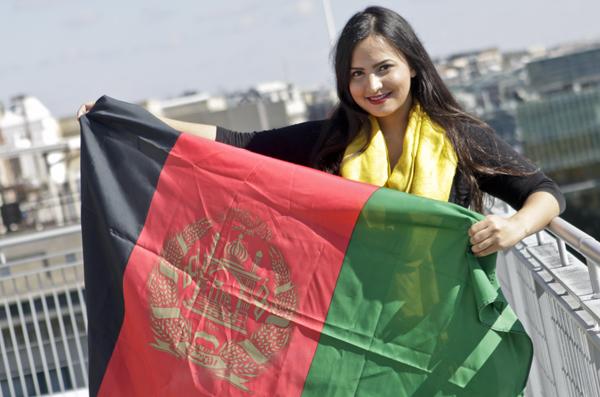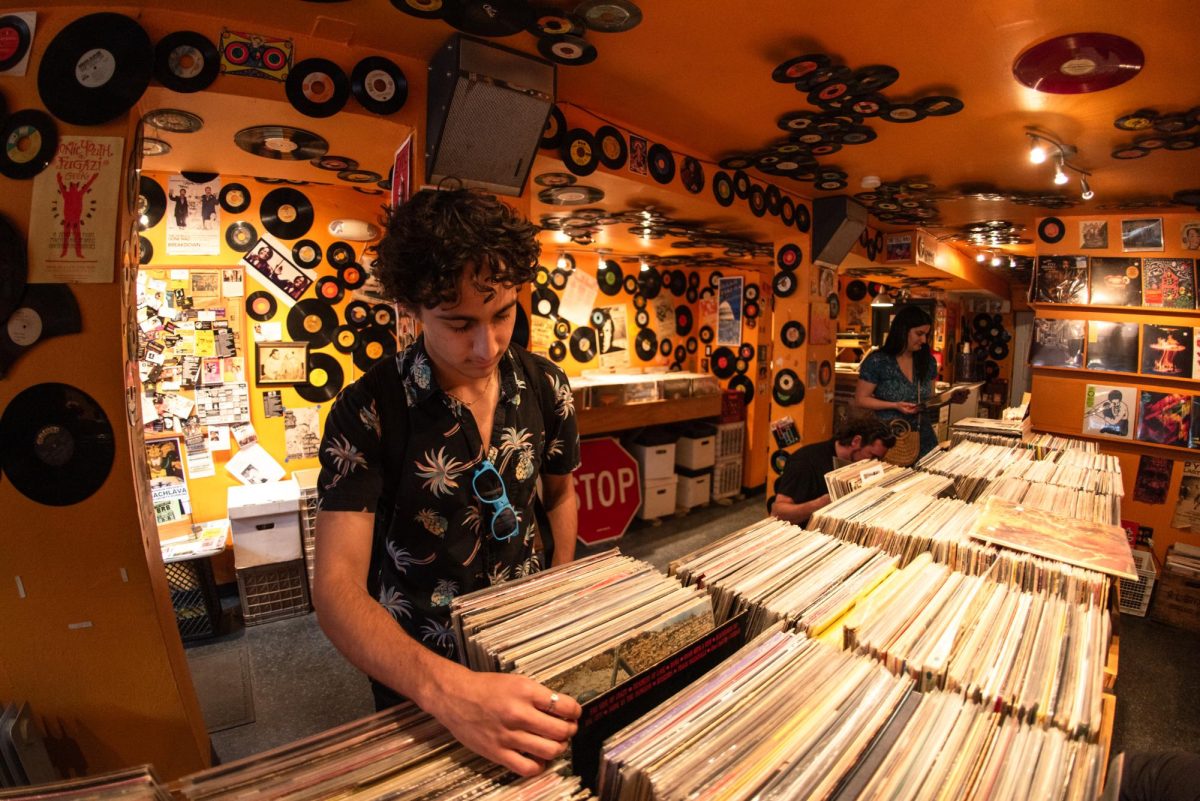People have been telling Hannah Ghani’s father to run for president of Afghanistan for as long as she can remember.
The senior international affairs major watched her father, Hashmat Ghani Ahmadzai, govern about 2.4 million Afghani Pashtun nomads and quietly craft a plan to run the country rife with corruption, drugs and scars of war. But he didn’t tell her about his presidential aspirations until the night before he registered this month.
“Hi, sweetheart,” Hashmat Ghani’s voicemail warbled from Hannah’s cell phone speakers. “I just wanted to let you know that in the morning, I am going to register to run for president of the country. Okay, talk to you later.”
Hannah, who was born in Virginia but went to high school in Dubai, grew up in a family of prominent Afghan politicians and academics. But she was stunned by her father’s decision to run for president in 2014, trying to edge ahead of about 25 other candidates.
Last week, her 54-year-old father’s citizenship was challenged, and he is now facing a disqualification along with 15 other presidential hopefuls. He told Al-Jazeera that he thought his ousting was a “personal game” of current President Hamid Karzai.
As her father challenges the ruling this month, Hannah Ghani said she still thinks he has the imposing presence and political chops to lead the country out of an economic abyss.
Hashmat Ghani, who declined a request for an interview, has been reported to drive in a bulletproof Mercedes limousine from his 23,000 square foot Kabul home. He speaks five languages and was educated in Afghanistan, Pakistan, France, New York and D.C.
“Honestly, he’s the sweetest person on the inside, but he’s also the most intimidating man you will ever meet. He’s tall and he commands a presence,” Ghani says of her father. “He’s the only man in the world that could make Karzai and all of Karzai’s enemies – all of these men who, on any other day, would kill each other – stand in the same room and come together for my grandmother’s funeral.”
He is running to replace Karzai, who has served as Afghanistan’s president since the inception of America’s military occupation 12 years ago. But despite the creeping democratization of Afghanistan’s electoral process, experts say Karzai’s attempts to influence the election’s outcome make clean play unlikely.
And it’s not just her father’s campaign she has to worry about: Hannah’s uncle and Afghanistan’s former Minister of Finance, Ashraf Ghani, is running for president, too.
Residents of the village where the two brothers live were surprised by the dueling presidential runs, Al Jazeera reported, as Afghans questioned how two brothers who can’t settle their own differences can help fix the country.
“I’m surprised so many people are taken aback by the fact that my dad and uncle are both running for the office. It’s not that uncommon,” Hannah Ghani said. “I still have great respect for my uncle. He just has a very textbook approach, while my dad is more hands-on.”
As chairperson of the Kochi people – a rural ethnic tribe mostly located in the Kabul region – Hashmat Ghani says he understands the strife of the rural people who are historically one of the Taliban’s largest sources of recruitment and among the world’s poorest.
His platform includes reducing the state’s dependence on opium production – which would curb the Taliban’s financial clout – and expanding its marble industry, giving Afghanistan a more reliable and secure source of income.
But GW international business professor and former International Monetary Fund executive board member Hossein Askari said that rebuilding Afghanistan is far from plausible, at least within the next two decades.
He explained that Afghanistan has no incentive to change its ways: Despite receiving about $55 billion in foreign aid over the last decade, the Afghan government has only used 10 to 25 percent of that money to build infrastructure or stimulate industrial growth, all because the government uses the aid to line its own pockets.
Askari said that for any industry to become successful in Afghanistan, the state first has to have solid institutions — the most important of which is the rule of law.
“To get Afghanistan back on its feet – I’m sorry to be so negative – but only God knows how and when that can happen. If you’re running in that country for office, you’ll say anything, but can he deliver? I think absolutely not,” Askari said.
Hannah sees Afghanistan’s problem differently: To her, it’s the spirit and willpower of its citizens that needs readjustment.
“People are definitely justified to feel the way they do, but the problem is that they have no spirit,” Ghani said. “I hear about a bombing in Kabul, and immediately I have to call my dad. It’s scary, so it’s not something I try to think about.”
This story was updated on Oct. 30 to reflect the following:
Correction appended
The Hatchet incorrectly reported that Hanna Ghani was born in Afghanistan. She was actually born in Virginia. We regret the error.







